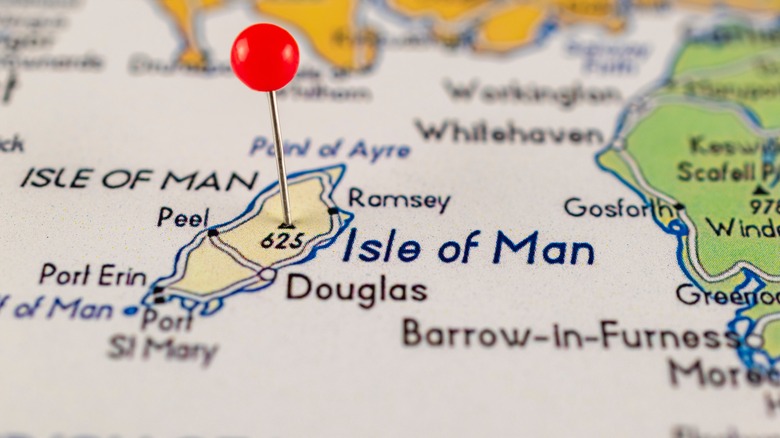The Reason Ted Koppel's Father Was Considered An Enemy Alien By England During WWII
In 1940, the year Ted Koppel was born in Nelson, England, the British government arrested his father, Erwin Koppel, a Jewish German immigrant, as a potential enemy alien, according to The Washington Post. Ted Koppel, the award-winning veteran journalist who helmed ABC's popular late-night news program "Nightline" for 25 years, was only a few months old when the government began rounding up thousands of Germans, including many Jews who had fled from Nazi Germany. They were forced into internment camps on the Isle of Man, a rural island in the Irish Sea between England and Ireland, according to the BBC.
Erwin Koppel owned a large rubber tire factory in Germany, and, in 1937, as the Nazis ramped up the persecution of Jews, the British government invited him to open a factory in Lancashire, England, per The Washington Post and "Political Commentators in the United States in the 20th Century." He married his wife, Alice, in the U.K. in 1939, per the Television Academy Foundation.
The British threw many German immigrants into internment camps
By May 1940, a wave of panic that the Nazis were about to invade the U.K. swept the country, prompting Winston Churchill, who had just become prime minister, to authorize the arrest of people suspected of being enemy aliens, per "The Island of Extraordinary Captives: A Painter, a Poet, an Heiress, and a Spy in a World War II British Internment Camp." In the ensuing haphazardly conducted sweep, many German Jews, including people like Erwin Koppel, who had been invited to the U.K., suddenly found themselves considered potential enemies of their new homeland.
He was just one of more than 80,000 people the British considered potential threats who might act as spies or assist the Nazis during an invasion, per the BBC. While Erwin languished at an internment camp, his wife, Alice, an amateur opera singer who had run her family's coffee business in Germany before she fled to England in 1938, had to contend with her newborn son in a new land. "It was an extraordinarily difficult time for my mother because she spoke very little English," Tedd Koppel told New York Magazine in a 1984 interview.
The Koppels move to the U.S.
In 1941, the British government let Erwin Koppel out of the internment camp on the Isle of Man. "After a year, the British, convinced that he was not an enemy alien after all, released him," Ted Koppel recounted in The Washington Post. It's unclear why the government had even considered him a potential threat since the Nazis had stripped him of his German citizenship. Erwin Koppel had been in the German army during World War I, which might have been part of the reason, since at the time it didn't take much more than mere rumors or the speculation of suspicious neighbors for the British to round up Germans and throw them into the camps, according to "The Island of Extraordinary Captives" and The Washington Post.
After the war, Erwin and Alice returned to Germany to try to get compensation for their property and possessions the Nazis had stolen, while Ted stayed back in England attending boarding school, according to New York Magazine. The family moved to the U.S. in 1953, and in 1963, Ted Koppel become a naturalized American citizen, got married, and began his stellar career as a journalist, 42 years of which was with ABC, per the Ted Koppel Collection of Syracuse University and The New York Times.


